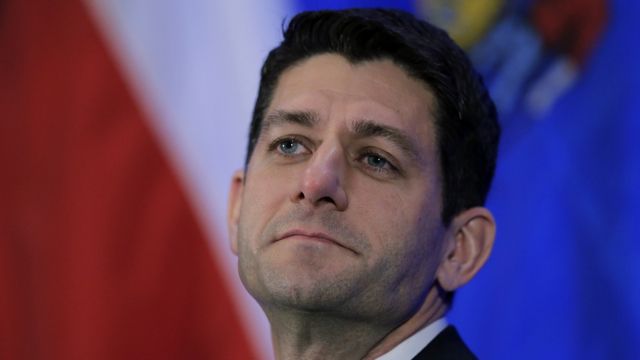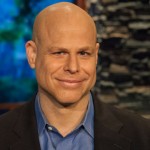
These days, a favorite talking point of Republican Congressman Paul Ryan’s is calling for an “adult conversation” about poverty.
“It’s time for an adult conversation,” he told The Washington Post.
“If we actually have an adult conversation,” he said in remarks at the Brookings Institution, “I think we can make a difference.”
The problem is that a prerequisite for any adult conversation is telling the truth and it is there the congressman falls monumentally short.
In addition to Rep. Ryan’s recent, racially-coded comments about “our inner cities” where “generations of men [are] not even thinking about working,” his rhetoric around policy should raise red flags for anyone — including the media — assessing his credibility.
A report from Emily Oshima Lee, policy analyst at the Center for American Progress Action Fund, examines the hatchet job Rep. Ryan did on Medicaid in his 204-page account of antipoverty programs that The Washington Post generously described as a “critique.” Indeed, Ryan’s report — which would have been flagged by my excellent 10th grade English teacher for misrepresenting and cherry-picking data — is a dangerous disservice to a public which has neither the time nor the staff that Ryan has at his disposal to delve into literature assessing antipoverty programs.
Lee notes that Ryan misuses research to imply that Medicaid coverage leads to poorer health — that people enrolled in Medicaid will have worse health than those with private insurance and the uninsured.
“The privately insured comparison is patently unfair because these people tend to be higher income and that comes with a whole host of health privileges,” said Lee.
She notes that Medicaid enrollees tend to struggle a lot more with chronic conditions and illnesses than other populations.
“A large body of literature identifies various social determinants of health, including socioeconomic status and living and work environments, as risk factors for poor health outcomes,” writes Lee, in my opinion admirably resisting the temptation to add, “duh.”
As for the uninsured being healthier — it would be one thing if Ryan were making an “apples to apples” comparison, but he’s not.
“The uninsured is a diverse group and doesn’t only include low-income individuals. It may include people who are high-income and don’t really want insurance but can afford health services, and lower-income people who may not have previously enrolled in insurance for a number of reasons — including cost and not having any real health issues,” Lee says. “But again, to imply that Medicaid is somehow making people worse off is absurd.”
Ryan also argues that Medicaid coverage has little positive effect on enrollees’ health. But as Lee points out, Ryan conveniently overlooks studies showing an association between Medicaid and lower mortality rates; reduced low-weight births and infant and child mortality; and lower mortality for HIV-positive patients, among other heath benefits.
“In general, we need more data to accurately assess the effect of Medicaid coverage on people’s health,” Lee continues. “But several studies do indicate positive health and non-health effects of coverage — such as increased use of preventive care and greater financial security.”
Rep. Ryan also plays on fears of low-income people abusing the welfare system when he asserts that Medicaid coverage improperly increases enrollees’ use of health care services, including preventive care and emergency department services. Ryan makes this case too by comparing Medicaid enrollees to uninsured people, who, as Lee writes, “are less likely to use health care services due to significant financial barriers.”
“Presenting data that Medicaid enrollees use more health services than the uninsured affirms that insurance coverage allows people who need care to seek it out,” writes Lee, “and that being uninsured is a major barrier to receiving important medical care.”
Further, one of the two studies Ryan references explicitly states that “neither theory nor existing evidence provides a definitive answer to… whether we should expect increases or decreases in emergency-department use when Medicaid expands.”
Despite Ryan’s shabby work when it comes to antipoverty policy, the media repeatedly seems willing to overlook it. That’s another strike against the prospects of a truly adult conversation about poverty — in addition to honesty, it requires accountability.


